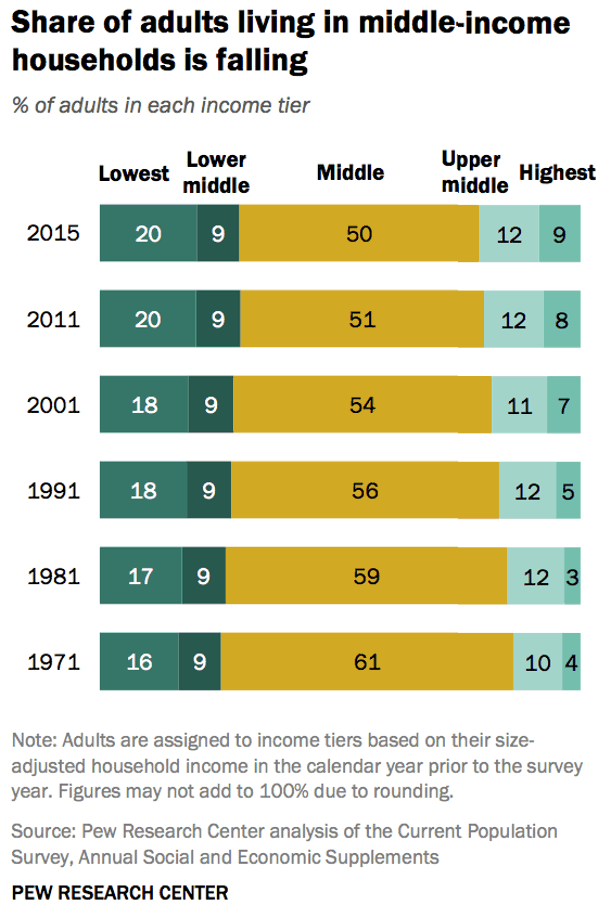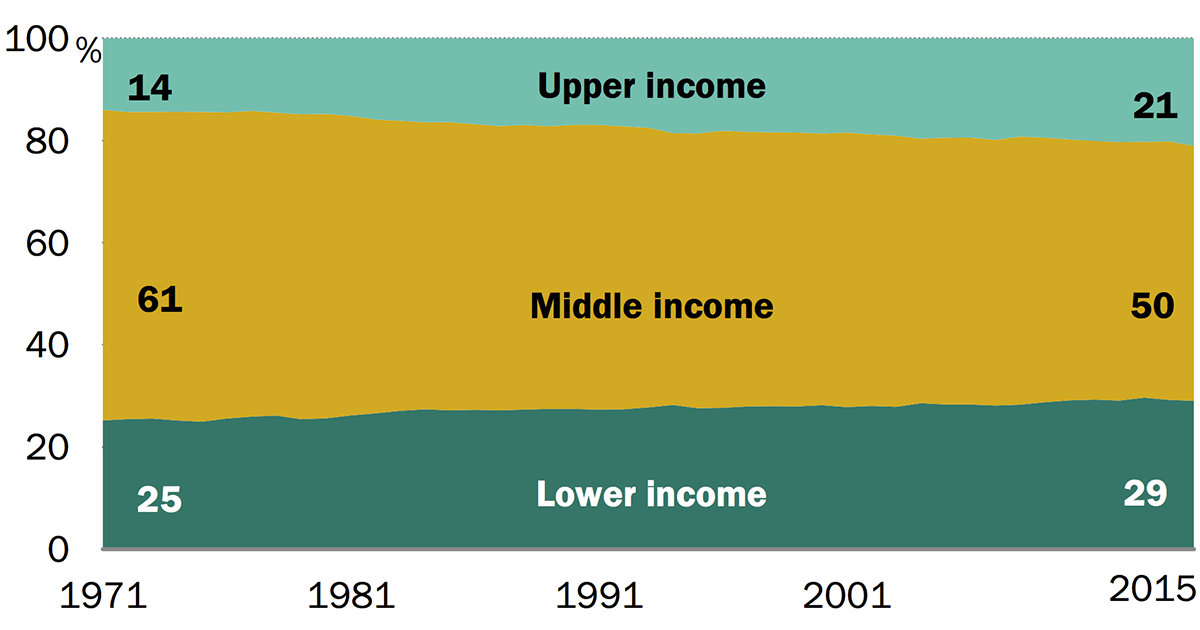
The nation’s engine of growth, America’s middle class, is shrinking. That’s according to a new study by the nonpartisan Pew Research Center that should serve as a cautionary note to policy makers who want to curtail workers’ ability to climb the economic ladder through the power of their unions.
Between 1971 and 2015 – the years the Pew researchers used to bookend their analysis – the share of American adults living in middle-income households fell from 61 percent to 50 percent. Meanwhile, 29 percent now live in lower-income households, and 21 percent in upper-income households.
The Pew report calls this four-decade trend the “hollowing of the American middle class.”
The Pew researchers note that nearly half of “U.S. aggregate income went to upper-income households in 2014, up from 29 percent in 1970. The share accruing to middle-income households was 43 percent in 2014, down substantially from 62 percent in 1970.”
To us, that means trouble ahead unless workers find the strength to move up the economic ladder – strength that comes through a union.
Similar economic studies have shown that union membership means upward mobility for working-class Americans. The Bureau of Labor Statistics’ 2014 Union Membership Report found that the median weekly earnings of nonunion workers ($763) were only 79 percent of the earnings of workers who also were union members ($970). U.S. Secretary of Labor Thomas Perez reacted to that report by stating it “confirms what we’ve always known: that belonging to a union makes a powerful difference in people’s lives, providing greater economic security and helping them punch their ticket to the middle class.”
The sad truth is that too many Americans are falling behind and staying there because they lack the power to get ahead – the kind of power that comes through collective bargaining.
Right-to-work scams and corporate-backed legal challenges such as Friedrichs v. California Teachers Association, scheduled for argument next month before the U.S. Supreme Court, will only make it harder for workers to remain in – or rise from – the middle class.
Read the full Pew Research Center report here.
